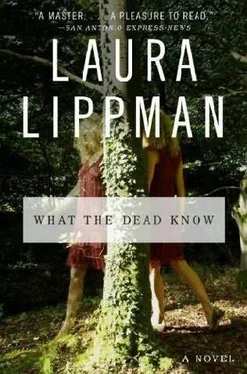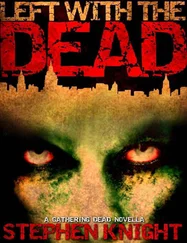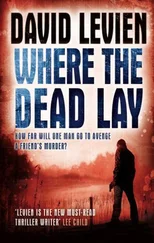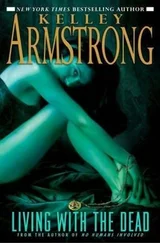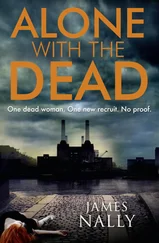The bus shelter on Forest Park Avenue was a more-than-familiar place to Sunny, part of her school-day routine going back almost three years, but she found herself studying it that afternoon as if seeing it for the first time. Although its purpose was basic-keep bus riders from the damp, if not the cold-someone had cared enough to add a few nonessential flourishes so it might be mistaken for attractive. The roof was off-green, a shade their mother had wanted to use for the trim on their house, but their father had said it was too dark, and their father, as the artistic one, always won such arguments. The pale beige bricks had a rough texture, while the slatted bench inside the structure was the same shade as the roof.
Boys in the neighborhood, indifferent to the bus shelter’s efforts, had scrawled rude graffiti on the walls in chalk and paint. Someone had come behind them and tried to remove the worst of it, but a few stubborn curses and character assassinations remained. Heather inspected these solemnly.
“Do they ever-” she began.
“No,” Sunny said swiftly. “They leave me alone.”
“Oh.” Heather’s tone sounded almost as if she felt sorry for Sunny.
“They don’t like me because of the fight. The kids on the bus.”
“But they don’t live here,” Heather said. “The graffiti is done by people who live here, right?”
“I’m the only one who goes to Rock Glen. Everyone else is older or younger, by a lot. That was the problem, remember? ‘We had right, but they had might.’ Majority rules.”
Bored with this family story in which she had played no part, Heather sat on the bench, opened her purse, and examined its contents, humming to herself. The bus was not due for another fifteen minutes, but Sunny hadn’t wanted to risk missing it.
The battle over the school bus route had been Sunny’s first brush with gross unfairness, a lesson in how money can triumph over principle. Most of the students on Sunny’s bus lived far up Forest Park Avenue, all the way on the other side of Garrison Boulevard. But under the city’s open-enrollment plan, they could choose to attend school wherever they liked, and they had bypassed the all-black school nearest them and picked Rock Glen on the city’s southwest side, which was still mostly white. A private bus service, paid for by all the parents, was set up. Sunny’s stop, the little shelter on Forest Park Avenue, was the last stop every morning and the first one every afternoon. For two years this seemed a logical plan to everyone involved. And then it didn’t.
Last summer the parents at the far end of the route began to grumble that their children would have a much shorter trip if the bus didn’t have to stop on the lower part of Forest Park Avenue for Sunny. Or, as they called her, “Just the one.” As in, “Just the one student.” Or, “Why should just the one student inconvenience so many?” They threatened to find another bus service, leaving the company with “just the one,” which would never cover the cost of the route. Sunny’s parents were appalled, but there was nothing they could do. If they wanted to continue using the bus service-essential, given that they both worked-they had to agree to a compromise: The route would be reversed in the afternoon. So every afternoon Sunny watched her own block fly past as the bus headed to the beginning of its route and dropped students off in reverse order, backtracking to Forest Park Avenue. Given that their families had won, the other students should have been gracious, but Sunny discovered it didn’t work that way. They disliked her more than ever because her parents had all but called their parents racists. “N.L.,” one of the larger boys hissed at her. “You and your parents are N.L.ers.” She had no idea what it meant, but it sounded terrifying.
The mass-transit system, unlike Mercer Transportation, could not be bullied. If it took twenty-five minutes to get to Security Square, with stops, then it took twenty-five minutes to get home again. The MTA was egalitarian , a word that she picked up from her father and particularly liked because it reminded her of The Three Musketeers with Michael York. When Sunny started Western High School next year, the plan was for her to take the MTA, using the free coupons distributed to students in monthly packs. To prepare for this, her parents had started allowing her to take practice runs-trips downtown, to Howard Street and the big department stores. That’s how she had come to reason that she could take the bus to Security Square and not tell anyone. Sunny was practically blasé about taking the bus places.
But Heather, who had never taken a public bus anywhere, bounced with excitement on the wooden bench, one hand clutching her fare, the other wrapped around the handle of her new purse. Sunny also had a purse from her father’s store, a macramé one, but they didn’t get such things for free despite what the other kids assumed. If the item wasn’t a gift, like Heather’s purse, then they were expected to pay the wholesale price, because their father said his “margins” wouldn’t allow for freebies. Margins always made Sunny think of her typing class, which she was failing, although not because of margins. Her problem was that she performed horribly at the timed trials, making so many mistakes that she ended up with a negative word-per-minute score. When she wasn’t being timed, she typed very well.
Sunny wondered why her parents had insisted that she take the typing elective in junior high, if they thought she was going to have to type for a living. Ever since sixth grade, when most of her friends were placed in the “enriched” track at Rock Glen, while she was merely “high regular,” she couldn’t help worrying that her future had been derailed while she wasn’t paying attention, that she’d lost options she never knew she had. When she was little, Grandpoppa and Grandmama had given her a nurse’s kit, while Heather had gotten a doctor’s kit. At the time the nurse’s kit was the better thing to have, because it had a pretty girl on its plastic cover and the doctor’s kit had a boy. How Sunny had lorded that over Heather. “You’re a boy .” But maybe it would have been better to be the doctor? Or at least to have people tell you that you could be the doctor? Their father said they could be anything they wanted to be, but Sunny wasn’t convinced that he really believed this.
Heather, of course, was going to be enriched when she entered Rock Glen next year, not that the placements had been announced yet. Heather would be enriched and then, most likely, in the A course at Western, which meant that she would skip the last year of junior high and enter high school in ninth grade instead of tenth. It wasn’t that Heather was smarter than Sunny. Their mother said that IQ tests showed that both sisters were smart, near genius. But Heather was good at school, the way someone else might be good at track or baseball. She understood the rules, whereas Sunny seemed to trip herself up by trying too hard to be creative and different. And while those were the very values that her parents professed to cherish above straight A’s and rote memorization, their expectations for Sunny had clearly flagged when she didn’t make enriched. Was that why she was so angry with them all the time? Her mother laughed and called it a phase, while her father encouraged her to argue-“But rationally,” a directive that only made her more irrational. Lately she had taken to challenging his politics, the thing he held most dear, but her father had remained maddeningly calm, treating her like a little girl, like Heather.
“If you want to support Gerald Ford in next year’s election, then by all means do it,” he told her just a few weeks ago. “All I ask is that you have reasoned positions, that you research his positions on the issues.”
Читать дальше
